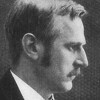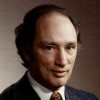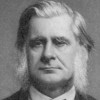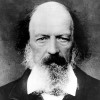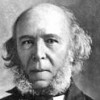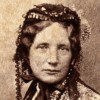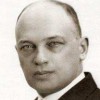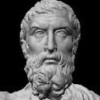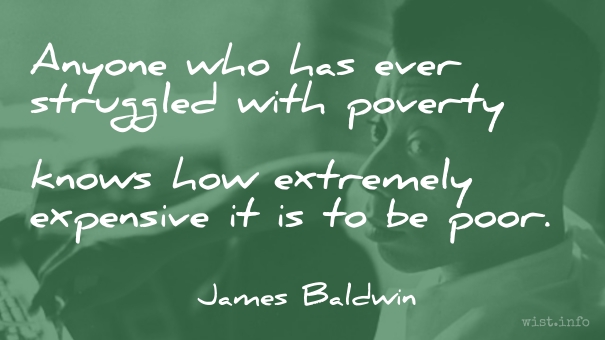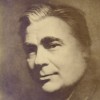Therefore it is fitting for the women to be married at about the age of eighteen and the men at thirty-seven or a little before — for that will give long enough for the union to take place with their bodily vigor at its prime, and for it to arrive with a convenient coincidence of dates at the time when procreation ceases. Moreover the succession of the children to the estates, if their birth duly occurs soon after the parents marry, will take place when they are beginning their prime, and when the parents’ period of vigor has now come to a close, towards the age of seventy.
Aristotle (384-322 BC) Greek philosopher
Politics [Πολιτικά], Book 7, ch. 16 / 1335a.27 [tr. Rackham (1932)]
(Source)
Alt. trans.:
And so it is best to unite women of about eighteen years of age and men of thirty-seven or less; for by such an arrangement the union will be during their greatest physical perfection, and will, as the years pass reach the limit of child-begetting at the right time. Again, the succession of children will be secured, as the younger generation will be having children at the beginning of their prime, supposing some to be born at once, as we may expect, and as the right age has passed away from the older generation as they approach the limit of seventy years.
[tr. Bolland (1877)]
Women should marry when they are about eighteen years of age, and men at seven and thirty; then they are in the prime of life, and the decline in the powers of both will coincide. Further, the children, if their birth takes place soon, as may reasonably be expected, will succeed in the beginning of their prime, when the fathers are already in the decline of life, and have nearly reached their term of three-score years and ten.
[tr. Jowett (1885)]
For which reason the proper time for a woman to marry is eighteen, for a man thirty-seven, a little more or less; for when they marry at that time their bodies are in perfection, and they will also cease to have children at a proper time; and moreover with respect to the succession of the children, if they have them at the time which may reasonably be expected, they will be just arriving into perfection when their parents are sinking down under the load of seventy years.
[tr. Ellis (1912)]
Hence it is fitting for women to unite in marriage around the age of eighteen, and for men at thirty-seven or a little before. At such an age, union will occur when their bodies are in their prime, and will arrive at its conclusion conveniently for both of them with respect to the cessation of procreation. Further, the succession of the offspring -- if birth occurs shortly after marriage, as can reasonably be expected -- will be for them at the beginning of their prime, while for the fathers it will be when their age has already run its course toward the seventieth year.
[tr. Lord (1984)]
Upon the first goblet he read this inscription, monkey wine; upon the second, lion wine; upon the third, sheep wine; upon the fourth, swine wine. These four inscriptions expressed the four descending degrees of drunkenness: the first, that which enlivens; the second, that which irritates; the third, that which stupefies; finally the last, that which brutalizes.
[Sur le premier gobelet on lisait cette inscription: vin de singe, sur le deuxième: vin de lion, sur le troisième: vin de mouton, sur le quatrième: vin de cochon. Ces quatre légendes exprimaient les quatre degrés que descend l’ivrogne; la première ivresse, celle qui égaye; la deuxième, celle qui irrite; la troisième, celle qui hébète; la dernière enfin, celle qui abrutit.]
We take the position that there is no place for the state in the bedrooms of the nation.
[L’État n’a pas d’affaires dans les chambres à coucher de la nation.]
Pierre Trudeau (1919–2000) Canadian politician
Comment in Canadian House of Commons (22 Dec 1967)
On the decriminalization of homosexuality. Also reported in a remark to newsmen in Ottawa as "The state has no business in the bedrooms of the nation" in The Globe and Mail (22 Dec 1967). Paraphrasing an earlier editorial in The Globe and Mail (12 Dec 1967): "Obviously, the state's responsibility should be to legislate rules for a well-ordered society. It has no right or duty to creep into the bedrooms of the nation."
I cannot say that I am in the slightest degree impressed by your bigness, or your material resources, as such. Size is not grandeur, and territory does not make a nation. The great issue, about which hangs true sublimity, and the terror of overhanging fate, is what are you going to do with all these things?
Bureaucrats write memoranda both because they appear to be busy when they are writing and because the memos, once written, immediately become proof that they were busy.
Charles Peters (b. 1926) American journalist, editor, author
How Washington Really Works (1980)
Man has gone long enough, or even too long, without being man enough to face the simple truth that the trouble with Man is Man.
James Thurber (1894-1961) American cartoonist and writer
“The Trouble with Man is Man,” The New Yorker (27 Aug 1960)
Full text.
It is a Secret known but to a few, yet of no small use in the Conduct of Life, that when you fall into a Man’s Conversation, the first thing you should consider is, whether he has a greater Inclination to hear you, or that you should hear him.
I … hate with a murderous hatred those men who, having lived their youth, would send into war other youth, not lived, unfulfilled, to fight and die for them; the pride and cowardice of those old men, making their wars that boys must die.
Mary Roberts Rinehart (1876–1958) American novelist
My Story, ch. 36 (1931)
In the long run, however little you talk or even think about it, the most durable thing in writing is style, and style is the most valuable investment a writer can make with his time. It pays off slowly, your agent will sneer at it, your publisher will misunderstand it, and it will take people you never heard of to convince them by slow degrees that the writer who puts his individual mark on the way he writes will always pay off.
Facts too shocking to be contemplated occasionally force their way to the public ear, and the comment that one often hears made on them is more shocking than the thing itself. It is said, “Very likely such cases may now and then occur, but they are no sample of general practice.” If the laws of New England were so arranged that a master could now and then torture an apprentice to death, would it be received with equal composure? Would it be said, “These cases are rare, and no samples of general practice”? This injustice is an inherent one in the slave system, — it cannot exist without it.
As one digs deeper into the national character of the Americans, one sees that they have sought the value of everything in this world only in the answer to this single question: how much money will it bring in?
People often grudge others when they cannot enjoy themselves.
Aesop (620?-560? BC) Legendary Greek storyteller
Fables [Aesopica], “The Dog in the Manger” (6th C BC)
(Source)
Be not too hasty to trust or to admire the teachers of morality; they discourse like angels, but they love like men.
Samuel Johnson (1709-1784) English writer, lexicographer, critic
The History of Rasselas, Prince of Abissinia, ch. 18 (1759)
(Source)
The weight of evidence for an extraordinary claim must be proportioned to its strangeness.
Pierre-Simon, Marquis de Laplace (1749-1827) French mathematician, astronomer
“The Principle of Laplace” (Attributed)
See also Carl Sagan.
The image is made to order, tailored to us. An ideal, on the other hand, has a claim on us. It does not serve us; we serve it. If we have trouble striving toward it, we assume the matter is with us, and not with the ideal.
For as man is the best of the animals when perfected, so he is the worst of all when sundered from law and justice. For unrighteousness is most pernicious when possessed of weapons, and man is born possessing weapons for the use of wisdom and virtue, which it is possible to employ entirely for the opposite ends. Hence when devoid of virtue man is the most unholy and savage of animals, and the worst in regard to sexual indulgence and gluttony.
Aristotle (384-322 BC) Greek philosopher
Politics [Πολιτικά], Book 1, ch. 2 / 1253a.31 [tr. Rackham (1932)]
(Source)
Alternate translations:
For man is an animal which, just as it is when fully perfected the best of all, so when separated from law and justice, is the worst of all. For injustice is most difficult to cope with when armed. Man is born into the world in the possession of arms, in the shape of practical wisdom and moral excellence, which he can use to the fullest degree for exactly contrary objects; when destitute of virtue, he is an animal most unholy and most savage, and most viciously disposed toward sensuality and gluttony.
[tr. Bolland (1877)]
For man, when perfected, is the best of animals, but, when separated from law and justice, he is the worst of all; since armed injustice is the more dangerous, and he is equipped at birth with arms, meant to be used by intelligence and virtue, which he may use for the worst ends. Wherefore, if he have not virtue, he is the most unholy and the most savage of animals, and the most full of lust and gluttony.
[tr. Jowett (1885)]
For as by the completion of it man is the most excellent of all living beings, so without law and justice he would be the worst of all, for nothing is so difficult to subdue as injustice in arms: but these arms man is born with, namely, prudence and valour, which he may apply to the most opposite purposes, for he who abuses them will be the most wicked, the most cruel, the most lustful, and most gluttonous being imaginable.
[tr. Ellis (1912)]
For just as man is the best of animals when completed, when separated from law and adjudication he is the worst of all. For injustice is harshest when it is furnished with arms, and man is born naturally possessing arms for prudence and virtue which nevertheless are very susceptible to being used for their opposites. That is why, without virtue, he is the most unholy and the most savage of animals, and the worst with regard to sex and food.
[tr. Lord (1984)]
Music expresses that which cannot be said and on which it is impossible to be silent.
[Ce qu’on ne peut dire et ce qu’on ne peut taire, la musique l’exprime.]
Victor Hugo (1802-1885) French writer
William Shakespeare, Part 1, Book 2, ch. 4 (1864) [tr. Baillot]
(Source)
(Source (French)). Alternate translation:
Music expresses that which cannot be said, and which cannot be suppressed.
[tr. Anderson (1891)]
I tell you … as officers, that you will neither eat, nor drink, nor smoke, nor sit down, nor lean against a tree until you have personally seen that your men have first had a chance to do these things. If you will do this for them, they will follow you to the ends of the earth. And if you do not, I will bust you in front of your regiments.
Anyone who has ever struggled with poverty knows how extremely expensive it is to be poor.
James Baldwin (1924-1987) American novelist, playwright, activist
“Fifth Avenue, Uptown: a Letter from Harlem,” Esquire (Jul 1960)
(Source)
The vast number of titles which are published each year — all of them are to the good, even if some of them may annoy or even repel us for a time. For none of us would trade freedom of expression and of ideas for the narrowness of the public censor. America is a free market for people who have something to say, and need not fear to say it.
All sides in a trial want to hide at least some of the truth.
The defendant wants to hide the truth because he’s generally guilty. The defense attorney’s job is to make sure the jury does not arrive at that truth.
The prosecution … wants to make sure the process by which the evidence was obtained is not truthfully presented, because, as often as not, that process will raise questions.
The judge also has a truth he wants to hide: He often hasn’t been completely candid in describing the facts or the law.
Throughout history it has been the inaction of those who could have acted, the indifference of those who should have known better, the silence of the voice of justice when it mattered most, that has made it possible for evil to triumph.
Haile Selassie I (1892-1975) Emperor of Ethiopia (1930-1974) [b. Tafari Makonnen]
Address, UN General Assembly, Addis Ababa (4 Oct 1963)
Opening address to a special session of the General Assembly, making him the first ruler to address both the League of Nations and the United Nations.
See E. Burke.
Once upon a sunny morning a man who sat in a breakfast nook looked up from his scrambled eggs to see a white unicorn with a golden horn quietly cropping the roses in the garden. The man went up to the bedroom where his wife was still asleep and woke her. “There’s a unicorn in the garden,” he said. “Eating roses.” She opened one unfriendly eye and looked at him. “The unicorn is a mythical beast,” she said, and turned her back on him. The man walked slowly downstairs and out into the garden. The unicorn was still there; he was now browsing among the tulips.
James Thurber (1894-1961) American cartoonist and writer
“The Unicorn in the Garden”, The New Yorker (31 Oct 1939)
Full text.
Idleness is a disease which must be combated; but I would not advise a rigid adherence to a particular plan of study. I myself have never persisted in any plan for two days together. A man ought to read just as inclination leads him: for what he reads as a task will do him little good. A young man should read five hours in a day, and so may acquire a great deal of knowledge.
Samuel Johnson (1709-1784) English writer, lexicographer, critic
Comment (9 Jul 1763)
(Source)
In James Boswell, The Life of Samuel Johnson (1791)
A good story cannot be devised; it has to be distilled.
Is man ever a creature to be trusted with wholly irresponsible power? And does not the slave system, by denying the slave all legal right of testimony, make every individual owner an irresponsible despot? Can anybody fall to make the inference what the practical result will be? If there is, as we admit, a public sentiment among you, men of honor, justice and humanity, is there not also another kind of public sentiment among the ruffian, the brutal and debased? And cannot the ruffian, the brutal, the debased, by slave law, own just as many slaves as the best and purest? Are the honorable, the just, the high-minded and compassionate, the majority anywhere in this world?
We have solved, by fair experiment, the great & interesting question Whether freedom of religion is compatible with order in government and obedience to the laws; & we have experienced the quiet as well as the comfort which results from leaving every one to profess freely & openly those principles of religion which are the inductions of his own reason, & the serious convictions of his own enquiries.
Thomas Jefferson (1743-1826) American political philosopher, polymath, statesman, US President (1801-09)
Letter to Va. Baptist Associations of Chesterfield (21 Nov 1808)
(Source)
A just society must strive with all its might to right wrongs even if righting wrongs is a highly perilous undertaking. But if it is to survive, a just society must be strong and resolute enough to deal swiftly and relentlessly with those who would mistake its good will for weakness.
This lowly sand which you trample beneath your feet, if you cast it into the furnace, and let it melt and seethe, shall become resplendent crystal, and by means of such as it a Galileo and a Newton shall discover stars.
[Ce vil sable que vous foulez aux pieds, qu’on le jette dans la fournaise, qu’il y fonde et qu’il y bouillonne, il deviendra cristal splendide, et c’est grâce à lui que Galilée et Newton découvriront les astres.]
For the future is like a corridor into which we can see only by the light coming from behind.
Edward Moffat Weyer, Jr. (1904-1998) American anthropologist, explorer
Primative Peoples Today, Introduction (1959)
You read something which you thought only happened to you, and you discover that it happened 100 years ago to Dostoyevsky. This is a very great liberation for the suffering, struggling person, who always thinks that he is alone. This is why art is important. Art would not be important if life were not important, and life is important.
James Baldwin (1924-1987) American novelist, playwright, activist
“An interview with James Baldwin” by Studs Terkel (1961), in Conversations With James Baldwin (1989)
(Source)
Baldwin revisited this theme multiple times.
You think your pain and your heartbreak are unprecedented in the history of the world, but then you read. It was Dostoevsky and Dickens who taught me that the things that tormented me most were the very things that connected me with all the people who were alive, or who had ever been alive. Only if we face these open wounds in ourselves can we understand them in other people. An artist is a sort of emotional or spiritual historian.
[Interview with Jane Howard, Life Magazine (24 May 1963)]
You think your pain and your heartbreak are unprecedented in the history of the world, but then you read. It was books that taught me that the things that tormented me most were the very things that connected me with all the people who were alive, or who had ever been alive.
["James Baldwin Recalls His Childhood," quoting from a television program, New York Times (31 May 1964)]
Never in History has the average American citizen found more need for a saving sense of humor. Beset by threats of destruction by atomic bombs, inflation, mounting taxes, overcrowded cities, witch hunters, propagandists, caterwauling commentators, and the incessant clamor of radio and television commercials, he must laugh occasionally to keep from blowing his top altogether. It’s far too easy to see only the shadows, and ignore the patches of sunlight that remain.
Bennett Cerf (1898-1971) American publisher, humorist
Laughter Incorporated, Foreword (1950)
(Source)
Do not consider yourself to have made any spiritual progress unless you account yourself the least of all men.
[Non reputes te aliquid profecisse, nisi omnibus te inferiorem esse sentias.]
Thomas à Kempis (c. 1380-1471) German-Dutch priest, author
The Imitation of Christ [De Imitatione Christi], Book 2, ch. 2, v. 4 (2.2.4) (c. 1418-27) [tr. Sherley-Price (1952)]
(Source)
(Source (Latin)). Alternate translations:
Moreover, if thou wilt come to the highness of perfection, think not thyself to have profited anything in virtue, till thou canst feel meekly in thy heart that thou hast less meekness and less virtue than hath any other.
[tr. Whitford/Raynal (1530/1871)]
Moreover, if you will come to the height of perfection, do not think that you have advanced in virtue until you can feel humbly in your heart that you have less humility and less virtue than anyone else.
[tr. Whitford/Gardiner (1530/1955)]
Think not that thou hast profited any thing at all, unlesse thou hast learnt to esteem thy selfe inferiour unto all.
[tr. Page (1639), 2.2.11]
No Man ought to esteem himself a Proficient in Goodness, who is not yet arrived to that Pitch of it, which teaches him to think himself the least of all Saints and last of all Men.
[tr. Stanhope (1696; 1706 ed.)]
Do not think that thou hast made any progress towards perfection, till thou feelest, that thou art less than the least of all human beings.
[tr. Payne (1803)]
Do not think that thou hast made any progress, unless thou esteem thyself inferior to all.
[ed. Parker (1841)]
Do not think that thou hast made any progress towards perfection, till thou feelest that thou art "less than the least of all" human beings.
[tr. Dibdin (1851)]
Never think thou hast made any progress till thou feel thyself inferior to all.
[ed. Bagster (1860)]
Reckon not thyself to have profited in anywise unless thou feel thyself to be inferior to all.
[tr. Benham (1874)]
Do not think that thou hast made any progress, unless thou esteem thyself inferior to all.
[tr. Anon. (1901)]
Hence, you must not think that you have made any progress until you look upon yourself as inferior to all others.
[tr. Croft/Bolton (1940)]
Consider yourself not to have made any progress unless you feel yourself inferior to all men.
[tr. Daplyn (1952)]
Never think that you have made any progress, till you have learned to regard all men as your betters.
[tr. Knox-Oakley (1959)]
Only when you think yourself of less importance than everybody else may you consider that you have made some progress.
[tr. Knott (1962)]
Consider that you have made no progress at all until you recognize that you are lower than everybody else.
[tr. Rooney (1979)]
Do not think you have made any progress unless you feel truly humble before God and others.
[tr. Creasy (1989)]

